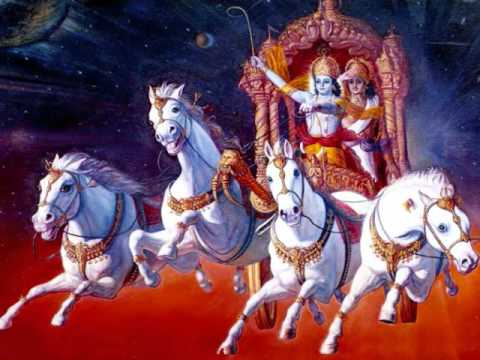Reincarnation is the belief that, when a person dies, their soul momentarily separates from the body, and after some time it takes another different body to be born again on earth. Therefore, we would go through many lives in this world.
And why does the soul need to be reincarnated? Because in a new existence it must pay for the sins committed in the present life or collect the prize of having had an honest behavior. The soul is, they say, in continuous evolution. And the successive reincarnations allow it to progress to perfection. Then it becomes pure spirit, no longer needs more reincarnations, and immerses itself forever in the infinity of eternity.

This blind law, which forces one to reincarnate into an inevitable destiny, is called the law of Karma (“act” in Sanskrit).
According to reincarnation, the body would be nothing more than a deciduous and disposable tunic that the immortal soul weaves out of necessity, and which, once worn, leaves aside to weave another.
There is an even more frightening form of reincarnationism, called “metempsychosis”, according to which if one has been very sinful, the soul can be reincarnated in an animal, and even in a plant! For the purposes of this article, reincarnation for dummies, we will focus on reincarnation into human beings only.
The advantages of Reincarnation
Those who believe in reincarnation think that it offers advantages. First, it gives us a second (or third, or fourth) opportunity. It would be unfair to risk our whole future in one go. In addition, it would anguish to have to settle for a single existence, sometimes mostly sad and painful. Reincarnation, on the other hand, allows us to begin anew.
On top of that, the time of a single human life is not enough to achieve the necessary perfection. This requires a long learning path, which we are gradually fulfilling. Not even the best men find themselves, at the moment of their death, in such a state of perfection. Reincarnation, on the other hand, allows this perfection to be achieved in other bodies.
Finally, reincarnation helps to explain certain incomprehensible facts, such as that some people are more intelligent than others, that suffering is so unevenly distributed among humanity, sympathies or antipathies between people, why some marriages are unhappy, or even the early death of children. All this is best understood if they are paying debts or reaping the merits of previous lives.
Why Reincarnation first appeared
The first time the idea of reincarnation appeared was in India, in the seventh century BC. Those men, closely linked to the agricultural mentality, saw that all things in nature, after completing their cycle, returned. So the sun would rise in the morning, set in the afternoon, and then rise again. The full moon was waning and waxing, but always returning to its full roundness. The stars repeated the same phases and stages every year. The seasons of summer and winter would come and go on time. The fields, the flowers, the floods, everything had a circular movement, of eternal return. The whole life seemed made of cycles that were repeated eternally.

This realization led men to think that themselves, when dead, should again return to earth. But as they saw that the body of the deceased started to decompose, they imagined that it was the soul that took a new body to continue living.
When Buddhism appeared in India in the fifth century BC, it adopted the belief in reincarnation. And along Buddhism, reincarnation spread in China, Japan, Tibet, and later in Greece and Rome. It also penetrated other religions, which added it to the basic elements of their faith.
A case of Reincarnation
On the side of a hill overlooking the Turkish village of Hancagiz, Engin Sungur turned to his parents and said, “I see the village where I lived.” they knew, however, that he had only lived with them in Tavla, a larger village about 4 km from Hancagiz. What the two-year-old boy was telling them was that Hancagiz had been his hometown in a previous life. As the Sungurs were Alevi Muslims who, unlike their neighbors, Sunni Muslims, believe in reincarnation, they reacted with curiosity rather than laughing it off.
“Whose son are you?” they asked. “I am Naif Cicek,” he replied and began to tell them of circumstances of his previous life and that he had gone to Angora shortly before his death. Then Engin asked his parents to take him to Hancagiz.
At first the Sungurs, who had never heard of Naif Cicek, refused. Later, the young Engin met Gulhan Cicek, the daughter of the deceased, who went to the school of Tavla. He called her “my daughter” and, seeing that the girl was scared, he explained that he was her father. Before this incident there had been no contact between the two families but, in the face of what happened, Engin’s mother decided to take him to Hancagiz to meet the rest of the family.
As soon as he saw the widow of Naif Cicek, he called her “my wife” and identified by name seven other members of the family. The boy even could point a piece of land claiming that in the past had been his, which turned out to be true even though it was no longer part of the estate. He also described in detail how he had been hit by a pickup truck, driven by his son, when reversing. In addition, it was learned that Naif went to Angora to see a doctor, as Engin had said, and died shortly after, in December 1979, at age 54. Engin was born almost three years later, on October 8, 1982.
Reincarnation for Dummies: I want to believe!
If you, like many people, flatly reject the idea of reincarnation or do not know enough to make a decision about it, here we’ll give you a fair amount of evidence to support the theory.
Throughout this short guide to believing in reincarnation, we have collected a number of interesting theories.
1. Children with awareness of their past lives
This is one of the strongest and best-documented evidence. During the 1950’s, scientists began to study the cases of children with memories of past lives. A group of 3 thousand children between 4 and 10 years of age were studied for the first research project. Many of the children in the study could accurately identify their past lives, highlighting names and places and even the way they had died. All these memories usually are gradually lost as the child grows up.
2. Child prodigies
A child prodigy is a boy or girl who possesses a talent or a special gift, mainly for the arts or sciences. Modern science attributes its gifts to brain chemistry, without being able to explain how their brains are special or different; but wouldn’t you consider that these young children have these remarkable abilities because they have learned them before? Could a child with a special gift for geometry have been a math professor in their past life?
3. Déjà vu
A déjà vu is a strange feeling of re-living an experience that we are really experiencing for the first time. For some people, these experiences are considered evidence of a past life, an echo of our memory. The best cases of déjà vu recall an enormous amount of details and a quantity of knowledge impossible to explain scientifically.

Reincarnation for Dummies: Signs of Reincarnation
Just like with déjà vu, these are some symptoms or phenomena that can lead us to suppose that the mind or soul can move from one body to another.
- Having recurring dreams
- It is common to dream of places, people or animals you have never met, or activities you have never done.
- Being insightful and accurate.
- The experience of past lives will help you to know better what can or will happen, pay close attention to that.
- Having a high level of empathy.
- Having had many lives, you have the ability to know how you feel in different situations.
- Keeping a low profile.
- The experience has led you to be a quiet, eccentric person who always knows how to keep calm during discussions or arguments.
- In appearance, having premonitory dreams.
- People who have reincarnated often have dreams in which they foresee events to come.
- Maturity is not a problem.
- People who have reincarnated are usually balanced in their work and personal life.
- Having an affinity with certain people, cultures or eras.
- Surely it has happened to you feeling an inexplicable love towards an era, a person of the past, a country or a culture, and this can happen when you are a reincarnated soul.
- Having unjustified fears and phobias.
- Humans experience fears in different situations; however, if you have phobias or terror to something that has not given any reasons to fear it, this could be a symptom.
Reincarnation for Dummies: How to prove reincarnation
Through past lives regression
This can be done by force of hypnotic suggestion, deep relaxation or spontaneous memories of previous existences. In the latter case, the memory can come during both the state of dream and the waking state.
Through a Medium
The medium is able to transmit revelations about previous existences, their own or of other people.
In innate ideas and children prodigy
These support the scientific basis of the (spiritual) inheritance, there are also birthmarks (marks in the physical body) as one more clue that helps to corroborate the investigations that have been carried out in this field.






